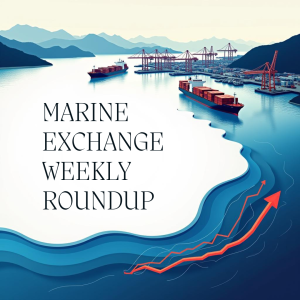
Dear Members and Maritime Community,
I am reaching out to you with rapidly growing concern about proposed legislation that could dramatically alter the cost and competitiveness of doing business in Washington’s maritime sector.
Senate Bill 5794 (SB 5794) proposes to eliminate the Public Utility Tax (PUT) exemption for cargo movement and repeal the Business & Occupation (B&O) preferential tax rate for stevedoring and freight services. These are not loopholes—they are time-tested, well-vetted tax policies that have helped Washington remain a global gateway for trade, logistics, and jobs for nearly 100 years.
If passed, this bill would increase costs across every link of the supply chain, reduce our port competitiveness, and threaten jobs—not just within maritime, but across agriculture, manufacturing, and export-reliant industries.
WHAT THIS MEANS FOR WASHINGTON
- Prices will increase for everyone.
Cargo doesn’t just disappear—it reroutes or becomes more expensive. Taxing the movement of goods on ships, trucks, and trains within Washington creates a “tax pyramid”—where costs multiply with every link in the chain, impacting businesses and consumers alike. - Jobs will be lost.
Washington’s maritime and logistics sectors support thousands of family-wage jobs. A disproportionate share of these jobs are held by workers of color (34% compared to 23% of the state’s population), meaning these changes will also exacerbate inequity. - Washington will fall behind.
Other states and provinces are doing the opposite. British Columbia, South Carolina, Georgia, Louisiana, Virginia, and others offer tax incentives to attract cargo and grow jobs. SB 5794 would make Washington an outlier—for all the wrong reasons. - Cargo will be diverted.
Much of the cargo moving through our ports is discretionary and bound for destinations beyond Washington. If operating costs climb, shippers can easily divert this cargo to ports in Canada, California, or along the Gulf Coast. - Washington exporters will lose access to containers.
Exporters depend on imported cargo for vessels and empty containers needed for outbound shipments. If imports are driven away by higher costs, exporters—including small farms, food processors, and manufacturers—lose access to the very infrastructure they rely on.
TAX PREFERENCES ARE NOT OBSOLETE
JLARC, the Legislature’s own audit agency, recommended clarifying the objectives of these tax preferences—not eliminating them. In 2012, they voted to maintain the preferential B&O rate for stevedoring, calling it a tool for increasing port competitiveness.
Numerous public and academic studies, including from the Federal Maritime Commission and the Joint Transportation Committee, confirm the price sensitivity of Washington cargo. Tariffs and trade disruptions have already harmed Washington ports—tax increases will only compound the problem.
WHAT YOU CAN DO
- Sign on to the Opposition Letter
We are organizing a joint letter of opposition to SB 5794. We invite your organization to add its name and stand with Washington’s maritime workers, exporters, and businesses. To sign on, please contact Patrick Gallagher at patrick@marexps.com as soon as possible. You can also register to testify online here. - Call Your Senators – Today
Tell your State Senator that you oppose SB 5794 and urge them to support maritime jobs and economic competitiveness. Contact your legislators here. Use this sample message when you call: “I’m calling to oppose SB 5794. Repealing maritime tax preferences will drive cargo away from Washington ports, raise prices, harm exporters, and put thousands of jobs at risk. Please protect Washington’s global trade competitiveness and vote no on SB 5794.” - Spread the Word
Share this message with your networks, port partners, trade organizations, and regional stakeholders. The more unified our voice, the stronger our case.
Washington’s maritime economy is a pillar of our state’s identity and prosperity. These tax preferences have worked for nearly a century—keeping our ports competitive, our exports flowing, and our communities employed. Now is not the time to undo that progress.
Thank you for your continued support and commitment to protecting the future of maritime trade in Washington.
Sincerely,
Patrick Gallagher
Marine Exchange of Puget Sound, Executive Director







No comment yet, add your voice below!